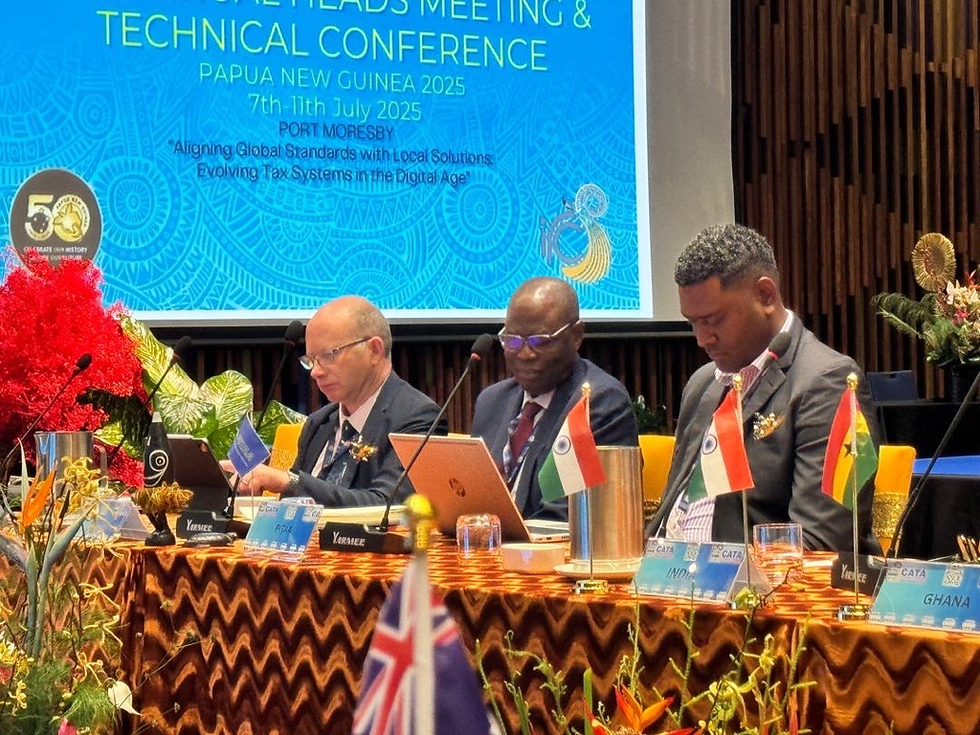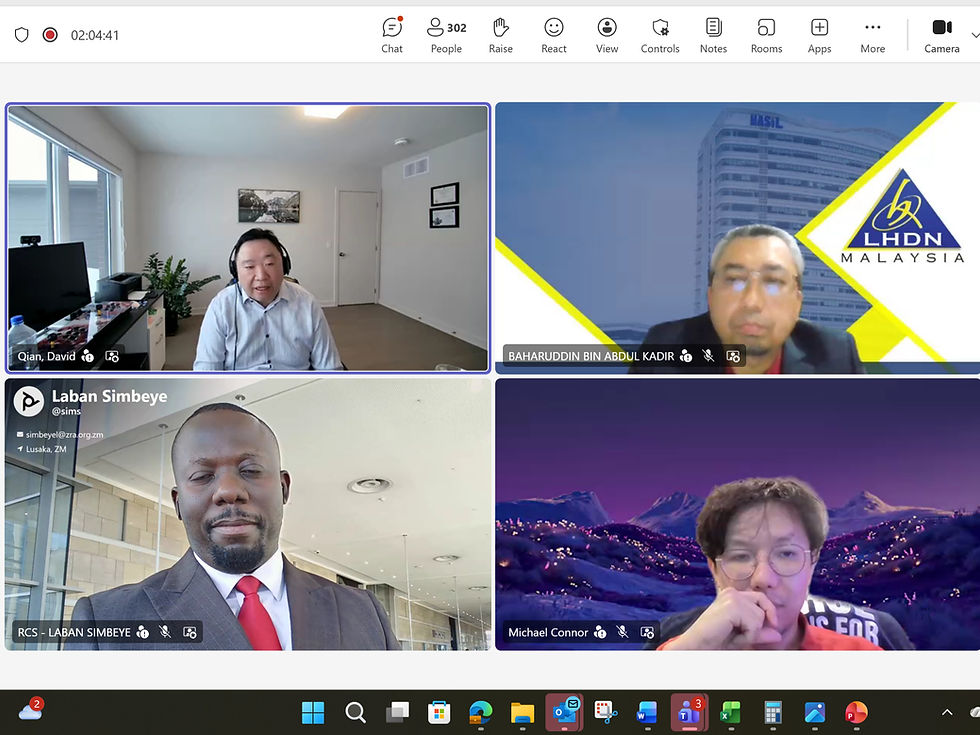Day 2 Highlights: CATA Heads Meeting, Port Moresby, 9 July 2025
- Jul 10, 2025
- 2 min read
Updated: Jul 12, 2025
Day 2 of the CATA Annual Heads Meeting and Technical Conference continued with a strong focus on the intersection of global tax standards and national priorities. Through a series of high-level panels and interactive discussions, tax leaders explored how to implement international frameworks while preserving sovereignty, building capacity, and fostering regional collaboration.

Panel: Implementing Global Tax Standards While Preserving National Interest
Moderated by Mr Anthony Kwasi Sarpong, Commissioner General of the Ghana Revenue Authority, this session brought together Heads and top officials of tax administrations from Australia, Zambia, the Maldives, and Gibraltar.
Key takeaways included:

Adapting global frameworks like BEPS and OECD standards to national contexts through legislative reform and institutional innovation.
Challenges in implementation, such as legal hurdles, political resistance, and data-sharing concerns.
The role of regional cooperation, with examples of joint audits, peer reviews, and technical assistance enhancing implementation success.

The session highlighted the importance of aligning international obligations with domestic development goals and maintaining fiscal autonomy. CATA plays a vital role in providing a platform for its members to discuss implementation experience, ensuring countries learn from their peers and find an implementation pathway suited to their needs and context.
Interactive Discussion: Leadership in Implementation
Led by Ms Gabbi Jackson of the Australian Taxation Office, this session featured insights from Mrs Angela Durham (Barbados) and Mr Daniel Dominic Daka (Malawi).

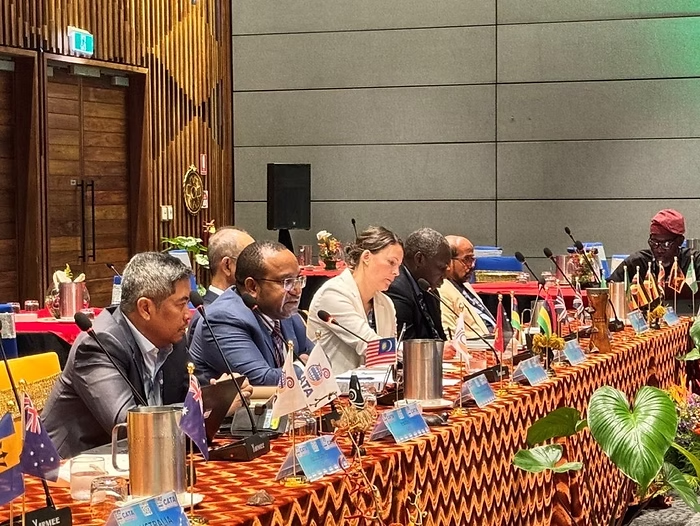
The discussion focused on:
Leadership strategies for navigating the complexities of multilateral tax agreements.
Country experiences in overcoming institutional and technical barriers.
Peer learning and support, with participants sharing best practices and identifying areas for enhanced regional cooperation.
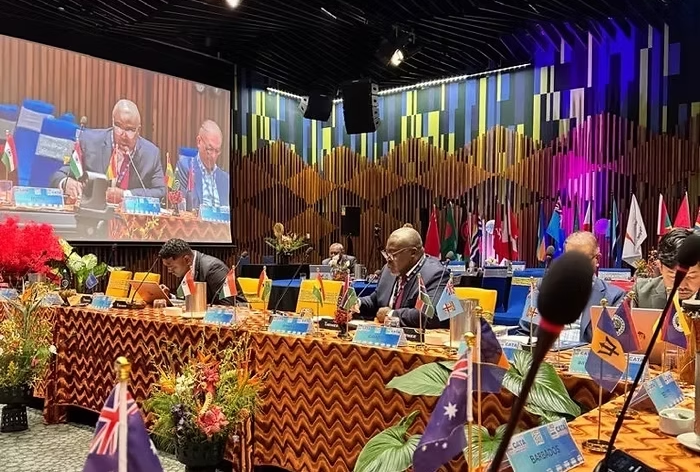
The session reinforced the value of open dialogue among Commissioners, an aim supported by CATA’s unique Commissioners Connect programme, and the need for tailored support mechanisms.
Panel: Cybersecurity in Tax Administration – Protecting Taxpayer Data in a Digital Age
Moderated by Ms Fahmida Khodabux of the Mauritius Revenue Authority, this session brought together cybersecurity leaders from India, Nigeria, Barbados, and the International Growth Centre.
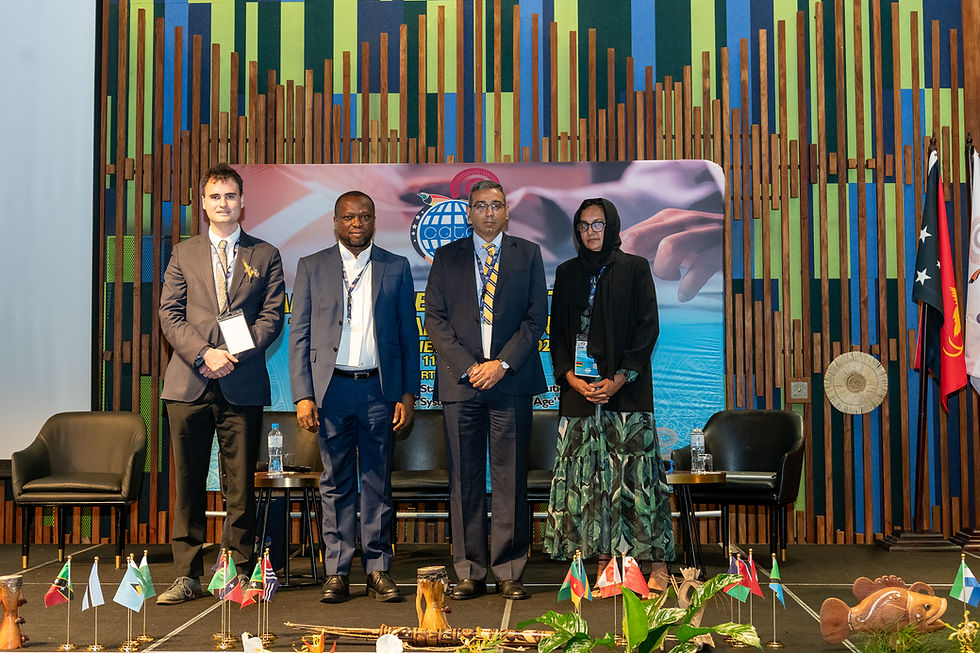

Key insights included:
Strategies for identifying and mitigating cyber threats, including the use of threat intelligence and real-time monitoring tools.
A case study from Nigeria showcasing successful implementation of cybersecurity measures and lessons learned.
The role of secure data architecture and cross-border collaboration in safeguarding taxpayer data.
Introduction of the new CATA Cybersecurity Working Group, aimed at fostering regional cooperation and knowledge-sharing.
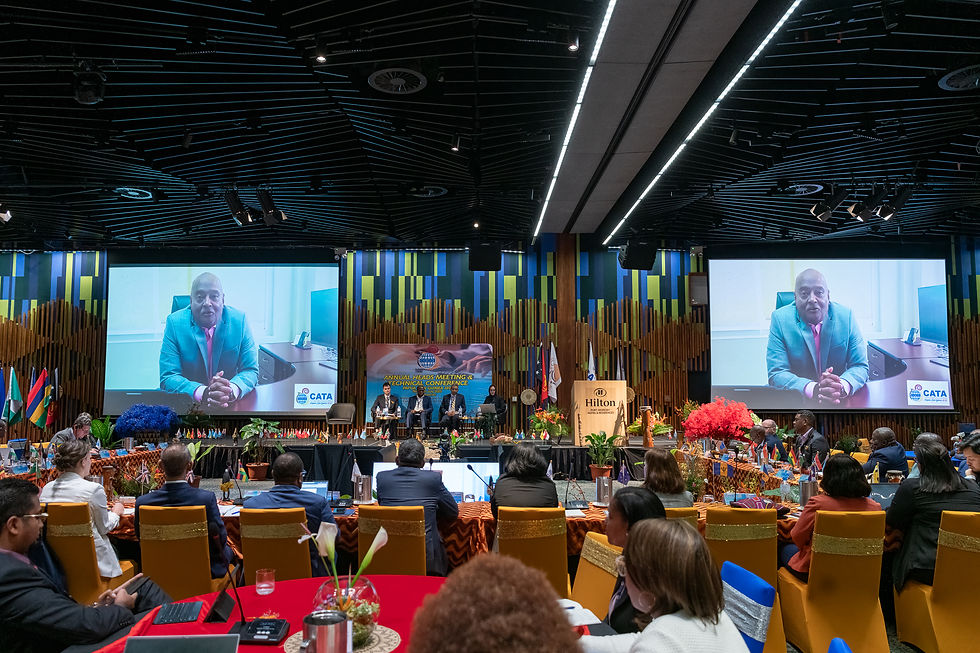
The session underscored the critical importance of proactive cybersecurity governance and leadership in building resilient digital tax systems. CATA recognises the significance of this subject and will support members through the work of the Cybersecurity Working Group, led by Mr Ravi Sankar, Director of IT Department, Barbados Revenue Authority.
Panel: Regional Collaboration and Knowledge Exchange
Moderated by Ms Debbie Lock, Vice Chair of CATA, this session brought together tax administration leaders, regional and international organisations to explore how collaboration can drive shared success.


Highlights included:
Regional perspectives from the Caribbean, Asia, Pacific, and Africa on common challenges and capacity-building needs.
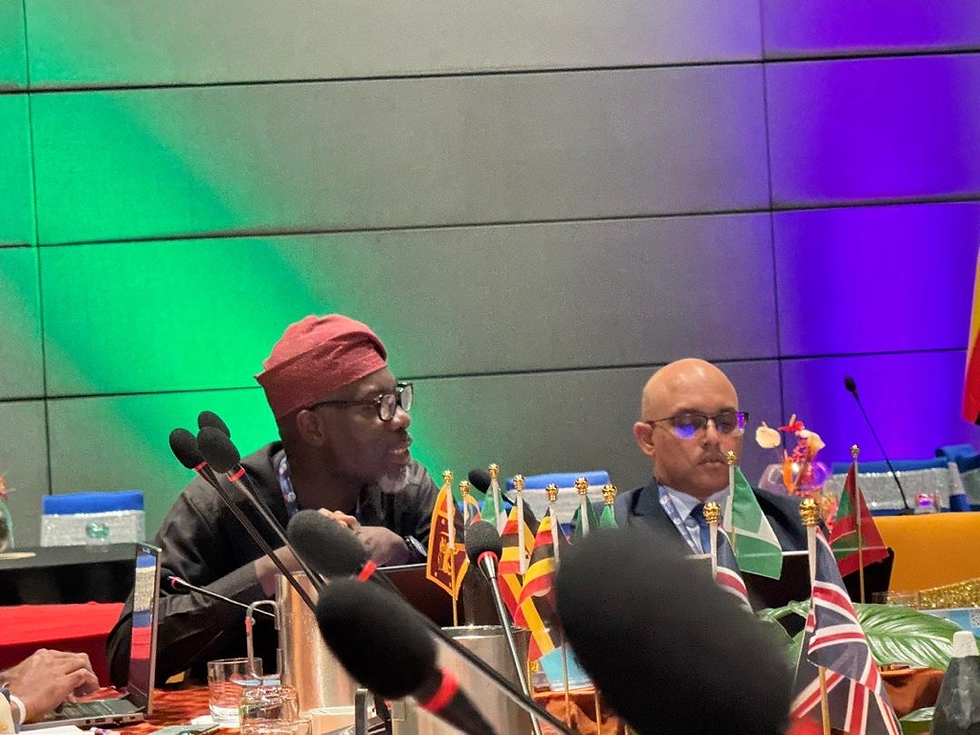
International insights from organisations such as CATA, CIAT, PITAA, WATAF, IMF, OECD, and the World Bank on tools and platforms for knowledge exchange.

Future-ready tax administrations, with a focus on developing the skills and frameworks needed to meet emerging demands.
The session concluded with a call to action for deeper cross-regional collaboration and continued investment in human capital and institutional resilience.
